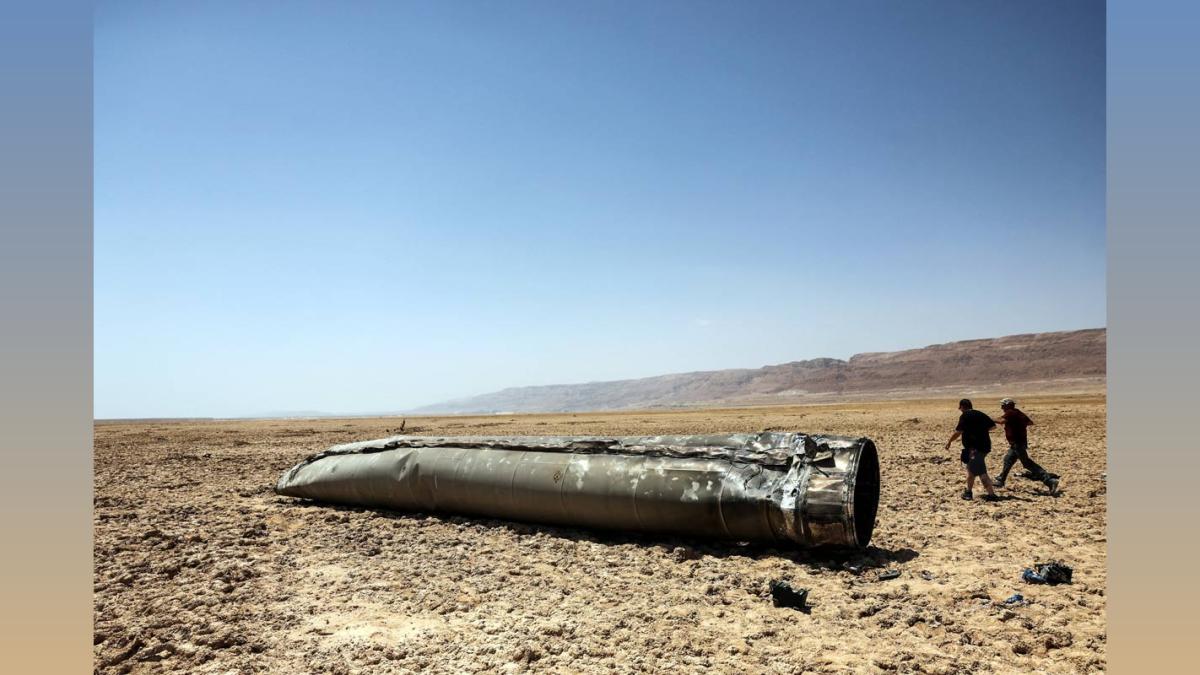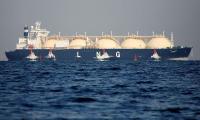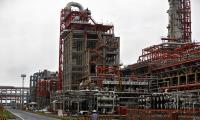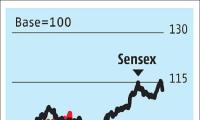Oil Prices: Minister Puri Hopes for Cool Down
India's Petroleum Minister Hardeep Singh Puri expressed hope for a decline in global oil prices, citing sufficient oil supplies and upcoming production from Brazil and Guyana. He also acknowledged the impact of geopolitical tensions on oil prices.

Photograph: Ronen Zvulun/Reuters
New Delhi, Oct 22 (PTI) Petroleum Minister Hardeep Singh Puri on Tuesday said the world has enough crude oil and more supplies are coming into the market, which he hoped will cool down oil prices.
"There is no shortage of oil," he told reporters on the sidelines of an event here.
But geopolitical tensions cause prices to rise owing to higher freight and insurance charges incurred in avoiding conflict zones.
He hoped better sense will prevail and diplomacy will take precedence.
Despite geopolitical tensions, there is no shortage of oil in the world and more supplies from countries such as Brazil and Guyana are coming into the market, he said.
There is no anxiety over availability, he said, adding "We are confident of navigating, as we had in the past... any situation arising."
India imports more than 85 per cent of its oil needs and any rise in global rates not just impacts import bills but also fuels inflation.
"My hope is that oil prices remain stable and come down... that's my personal opinion," he said.
Earlier this month, international oil prices flared to over USD 78 per barrel from about USD 70 per barrel, as the market waited to see if Israel would retaliate against Iran for a missile attack last week. Rates have since dropped to USD 73-74 per barrel levels.
After the Iranian missile attack, it is being speculated that Israel may target oil or nuclear facilities in Iran. And Tehran can choose to respond with either direct attack on Israel or shutting the Strait of Hormuz - the world's most important oil transit point, further flaring oil prices.
The Strait of Hormuz, located between Oman and Iran, connects the Persian Gulf with the Gulf of Oman and the Arabian Sea. A fifth of global oil flows from the Strait. Oil from all major oil producers - Saudi Arabia, Iraq, Kuwait and UAE - is exported via the Strait.
Only Saudi Arabia and the United Arab Emirates (UAE) have operating pipelines that can circumvent the Strait of Hormuz.
Prior to the spike - the most since January 2023, there were hopes of a cut in petrol and diesel prices. The price of a basket of crude oil India imports had averaged USD 73.69 per barrel prior to in September, down from about USD 83-84 a barrel in March when petrol and diesel prices were last cut by Rs 2 per litre.
But the volatility has added to complexity of the issue.
While petrol and diesel pricing is deregulated (meaning oil companies have the freedom to fix retail rates), the state-owned fuel retailers, Indian Oil Corporation (IOC), Bharat Petroleum Corporation Ltd (BPCL) and Hindustan Petroleum Corporation Ltd (HPCL), have rarely used this freedom since late 2021 by not revising prices in line with cost.
They stopped daily price revision in early November 2021, when rates across the country hit an all-time high, prompting the government to roll back a part of the excise duty hike it had effected during the pandemic to take advantage of low oil prices.
The freeze continued into 2022 but the war-led spike in international oil prices prompted a Rs 10 a litre hike in petrol and diesel prices from mid-March 2022 before another round of excise duty cut rolled back all of the Rs 13 a litre and Rs 16 a litre increase in taxes on petrol and diesel done during the pandemic.
That followed the current price freeze which began on April 6, 2022, and continued till March 15 reduction. Thereafter there has been a freeze in rates again.
Petrol costs Rs 94.72 per litre in the national capital and diesel comes for Rs 87.62 a litre.
"There is no shortage of oil," he told reporters on the sidelines of an event here.
But geopolitical tensions cause prices to rise owing to higher freight and insurance charges incurred in avoiding conflict zones.
He hoped better sense will prevail and diplomacy will take precedence.
Despite geopolitical tensions, there is no shortage of oil in the world and more supplies from countries such as Brazil and Guyana are coming into the market, he said.
There is no anxiety over availability, he said, adding "We are confident of navigating, as we had in the past... any situation arising."
India imports more than 85 per cent of its oil needs and any rise in global rates not just impacts import bills but also fuels inflation.
"My hope is that oil prices remain stable and come down... that's my personal opinion," he said.
Earlier this month, international oil prices flared to over USD 78 per barrel from about USD 70 per barrel, as the market waited to see if Israel would retaliate against Iran for a missile attack last week. Rates have since dropped to USD 73-74 per barrel levels.
After the Iranian missile attack, it is being speculated that Israel may target oil or nuclear facilities in Iran. And Tehran can choose to respond with either direct attack on Israel or shutting the Strait of Hormuz - the world's most important oil transit point, further flaring oil prices.
The Strait of Hormuz, located between Oman and Iran, connects the Persian Gulf with the Gulf of Oman and the Arabian Sea. A fifth of global oil flows from the Strait. Oil from all major oil producers - Saudi Arabia, Iraq, Kuwait and UAE - is exported via the Strait.
Only Saudi Arabia and the United Arab Emirates (UAE) have operating pipelines that can circumvent the Strait of Hormuz.
Prior to the spike - the most since January 2023, there were hopes of a cut in petrol and diesel prices. The price of a basket of crude oil India imports had averaged USD 73.69 per barrel prior to in September, down from about USD 83-84 a barrel in March when petrol and diesel prices were last cut by Rs 2 per litre.
But the volatility has added to complexity of the issue.
While petrol and diesel pricing is deregulated (meaning oil companies have the freedom to fix retail rates), the state-owned fuel retailers, Indian Oil Corporation (IOC), Bharat Petroleum Corporation Ltd (BPCL) and Hindustan Petroleum Corporation Ltd (HPCL), have rarely used this freedom since late 2021 by not revising prices in line with cost.
They stopped daily price revision in early November 2021, when rates across the country hit an all-time high, prompting the government to roll back a part of the excise duty hike it had effected during the pandemic to take advantage of low oil prices.
The freeze continued into 2022 but the war-led spike in international oil prices prompted a Rs 10 a litre hike in petrol and diesel prices from mid-March 2022 before another round of excise duty cut rolled back all of the Rs 13 a litre and Rs 16 a litre increase in taxes on petrol and diesel done during the pandemic.
That followed the current price freeze which began on April 6, 2022, and continued till March 15 reduction. Thereafter there has been a freeze in rates again.
Petrol costs Rs 94.72 per litre in the national capital and diesel comes for Rs 87.62 a litre.
You May Like To Read
TODAY'S MOST TRADED COMPANIES
- Company Name
- Price
- Volume
- Vodafone Idea L
- 7.94 ( -0.50)
- 64805713
- Softrak Venture Inv
- 3.16 ( -4.82)
- 13166265
- Suzlon Energy Ltd.
- 59.90 (+ 1.03)
- 11313714
- Khoobsurat
- 0.66 (+ 4.76)
- 9861204
- GTL Infrastructure
- 1.50 ( -1.32)
- 9572262







 © 2025 Rediff.com India Limited. All rights reserved.
© 2025 Rediff.com India Limited. All rights reserved.